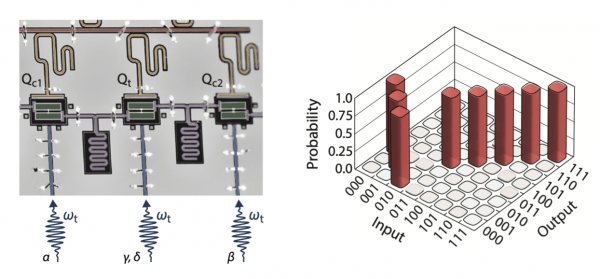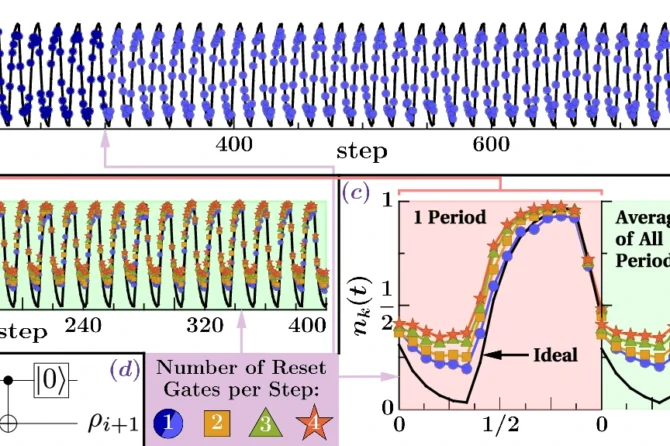Researchers at the Advanced Quantum Testbed (AQT) at Lawrence Berkeley National Laboratory (Berkeley Lab) conducted the first experimental demonstration of a three-qubit high-fidelity iToffoli native gate in a superconducting quantum information processor and in a single step.
Noisy intermediate-scale quantum processors typically support one- or two-qubit native gates, the types of gates that can be implemented directly by hardware. More complex gates are implemented by breaking them up into sequences of native gates. The team’s demonstration adds a novel and robust native three-qubit iToffoli gate for universal quantum computing. Furthermore, the team demonstrated a very high fidelity operation of the gate at 98.26%.
The Toffoli or the controlled-controlled-NOT (CCNOT) is a key logical gate in classical computing because it is universal, so it can build all logic circuits to compute any desired binary operation. Furthermore, it is reversible, which allows the determination and recovery of the binary inputs (bits) from the outputs, so no information is lost.
In tandem with the Hadamard gate, the Toffoli gate forms a universal quantum gate set, which allows researchers to run any quantum algorithm. Experiments implementing multi-qubit gates in major computing technologies — superconducting circuits, trapped ions, and Rydberg atoms — successfully demonstrated Toffoli gates on three-qubit gates with fidelities averaging between 87% and 90%. However, such demonstrations required researchers to break up the Toffoli gates into one- and two-qubit gates, making the gate operation time longer and degrading their fidelity.
To create an easy-to-implement three-qubit gate for the experiment, AQT designed an iToffoli gate instead of a conventional Toffoli gate by applying simultaneous microwave pulses fixed at the same frequency to three superconducting qubits in a linear chain.
The experiment demonstrated, similarly to the Toffoli gate, this three-qubit iToffoli gate can be used to perform universal quantum computation with high fidelity. Furthermore, researchers showed that the gates schematic on superconducting quantum processors could produce additional three-qubit gates, which provide more efficient gate synthesis — the process of breaking up quantum gates into shorter ones to improve circuit running times).
Researchers hope that the experimental approaches for high-fidelity and easy-to-implement multi-qubit gates, such as those explored at AQT, will trigger further studies to devise different multi-qubit gates for novel quantum information processing.
The work has been published in Nature Physics.


